General election 2019: Candidates choose not to publish home addresses
- Published
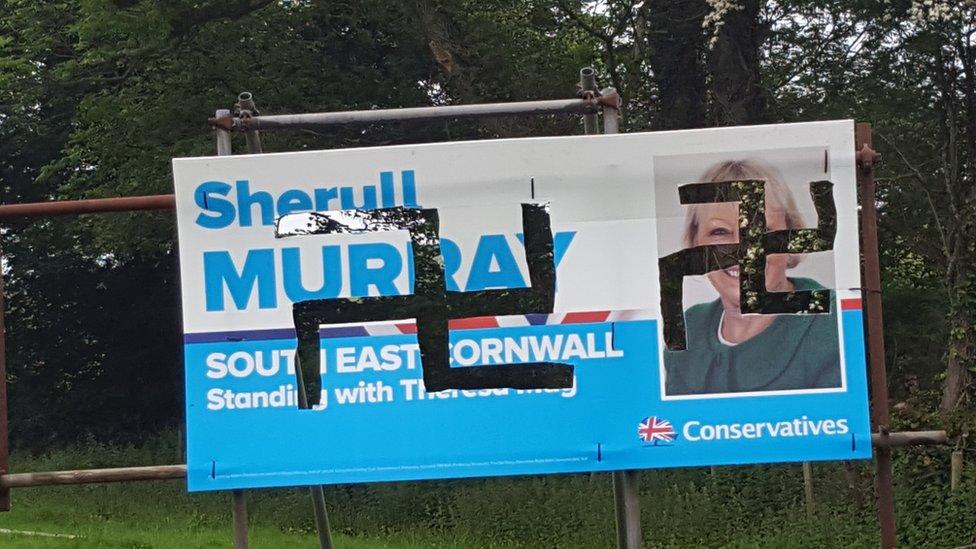
Many candidates have complained about placards being defaced in recent election campaigns
More than half of the candidates standing in the general election in Wales have kept their full home address off ballot papers amid fears of abuse.
Labour's Tonia Antoniazzi warned women in particular to be careful after she had a death threat while campaigning.
Conservative candidate Fay Jones said she felt unsafe after a placard in her garden was torn down.
The Electoral Commission said it provides guidance to candidates on safety before they stand for election.
BBC Wales research has discovered that 52% of candidates - 112 out of 216 - across the 40 Welsh constituencies have decided not to publish a full home address on official documents at this election.
In Westminster elections, candidates are given the option of publishing their addresses on election documents, including ballot papers. It is often seen as a means of verifying a candidate's local connection.
But in at least four constituencies across Wales - Ynys Mon, Alyn and Deeside, Monmouthshire and Aberconwy - all candidates have decided to withhold their home addresses, opting instead to identify their home constituency alone.
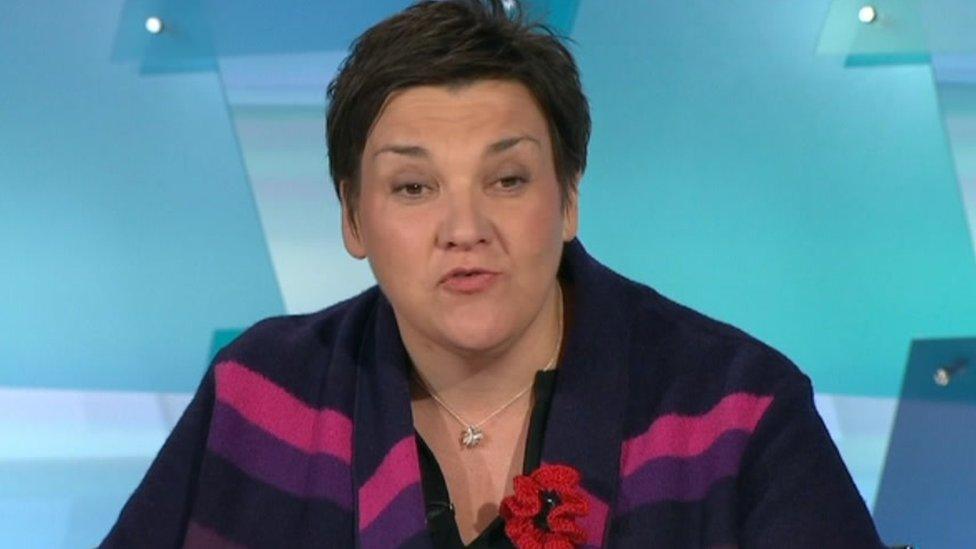
Tonia Antoniazzi said her home address should be "of no interest to anybody"
Tonia Antoniazzi said the ongoing row over Brexit "does fuel a lot of hate", adding that the decision not to publish her address was "absolutely" a conscious decision.
"People shouldn't do it, especially women ... I wouldn't recommend it at all," she said.
"I don't want anybody to know where I live. It's of no interest to anybody unless they want to be abusive."
Ms Antoniazzi revealed that she had alerted police to a person she came across while campaigning who "threatened to kill all MPs".
Fay Jones, standing for the Conservatives, said she regretted publishing her home address on election documents.
"Three weeks before the election, your address is published, people know where candidates live," she said.
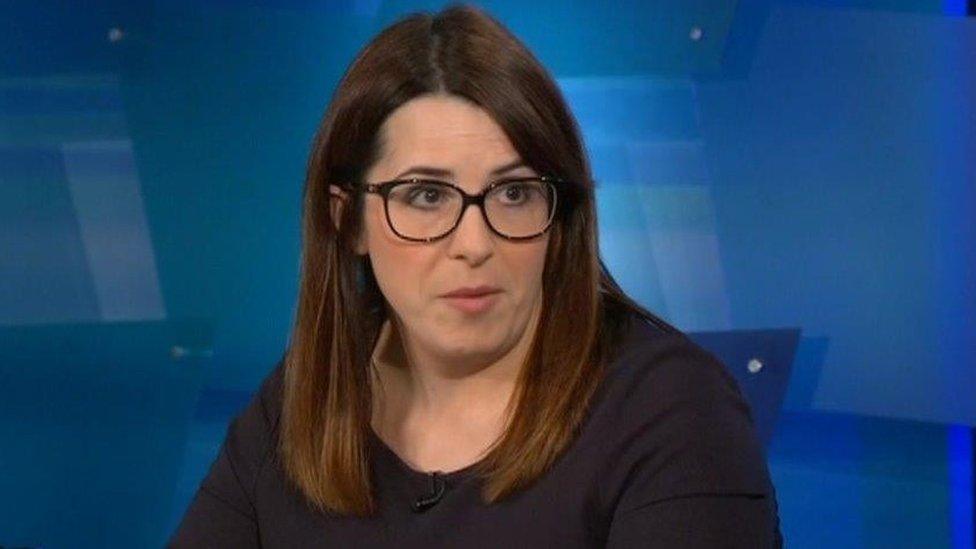
Fay Jones regrets publishing her home address
Ms Jones said she returned home on Monday night to find signs of someone entering her garden and tearing down her candidate placard.
"I wouldn't stay there on my own now…. people are quite agitated at the moment."
Liberal Democrat candidate Bablin Molik said she also regretted publishing her home address.
"When I first saw it on the ballot paper I just thought about my children," she said.
"It's just a form to be honest - when filling it in it asks for your address. I didn't think of the implications.
"There was no guidance as to what would happen if I did publish it. People should be made aware," she says.
The Electoral Commission said it did provide guidance to candidates on such issues before they stand for election.
"It is the candidate's decision whether or not to make their home address public," a spokesperson said.
"Safety of candidates is paramount, and we have recently published guidance in partnership with the National Police Chiefs Council to help candidates understand harassment and intimidation, and how to stay safe during the campaign period."
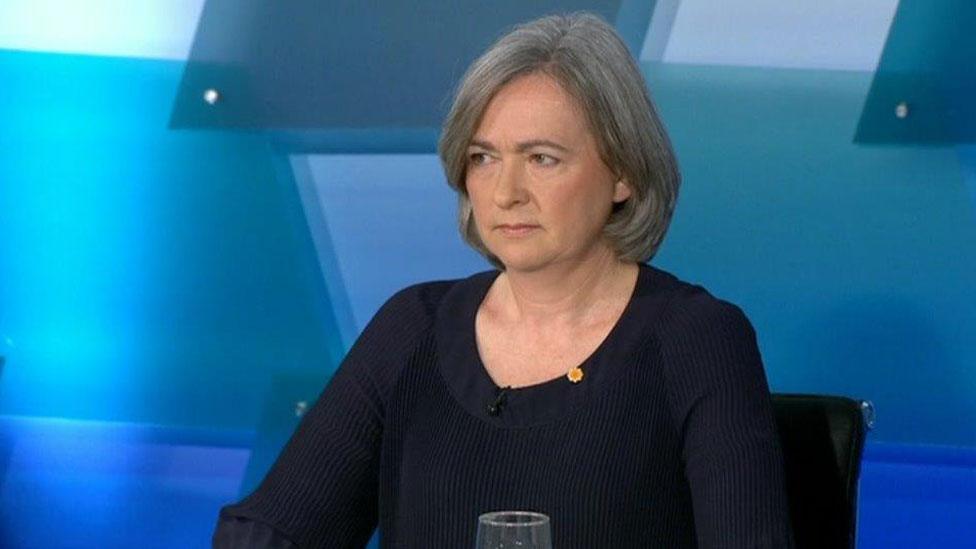
Liz Saville Roberts said the idea of publishing a home address "relates to a different age"
Liz Saville Roberts, first elected as an MP for Plaid Cymru in 2015, said this year for the first time she had not published her full home address in official election documents.
"In an age where people face very serious threats, I think it's wiser not to," she said.
"It's important to show a local link with the area, but publishing your home address? I think that relates to a different age."
The Electoral Reform Society in Wales said the number of candidates not publishing home addresses was a reflection of the abuse and intimidation aimed at many of them.
The group called on political parties to work together to improve safety for candidates, and stronger action by social media companies to tackle online abuse.
- Published31 October 2019
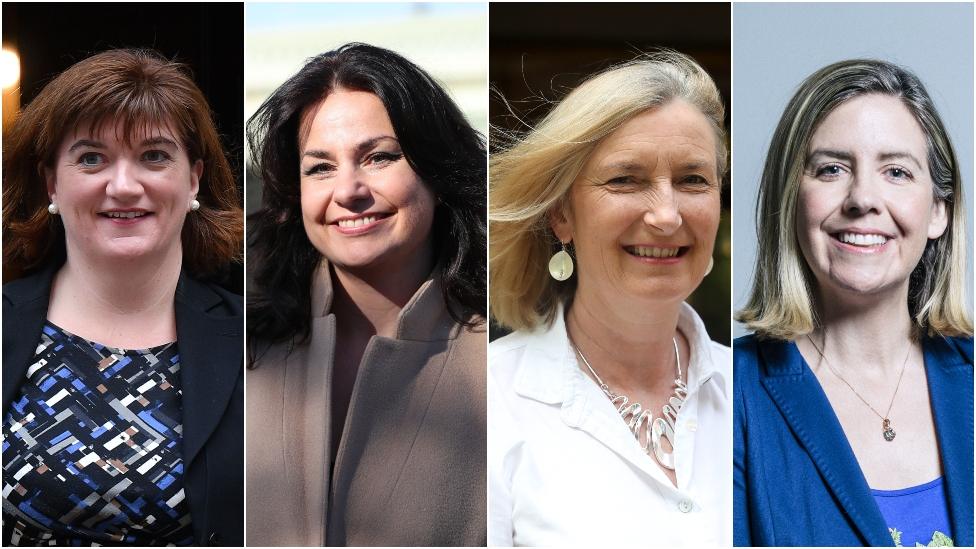
- Published21 May 2019
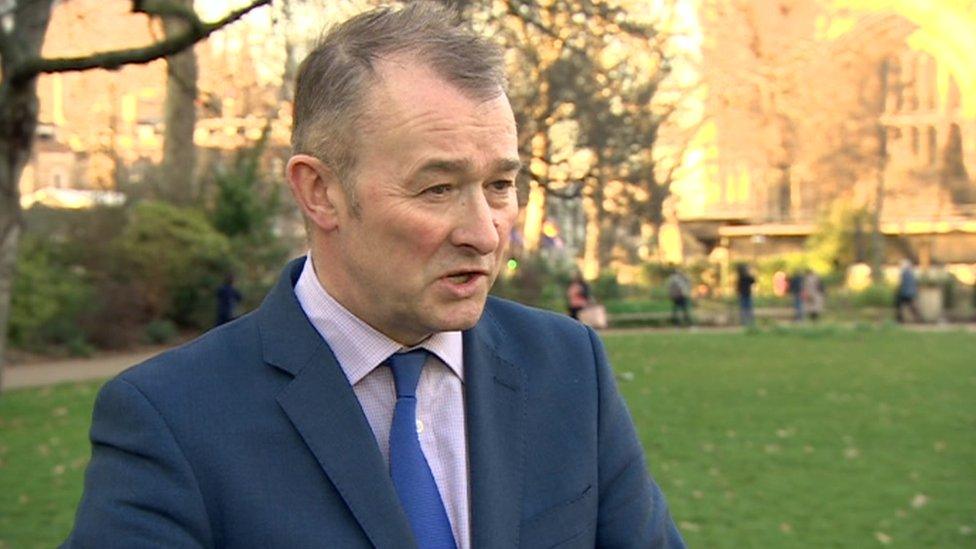
- Published30 May 2018
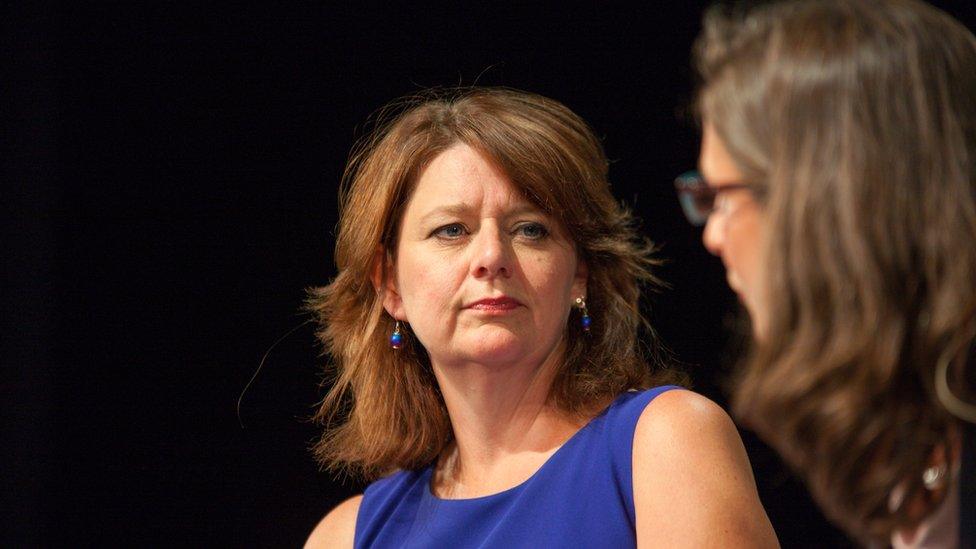
- Published16 July 2017
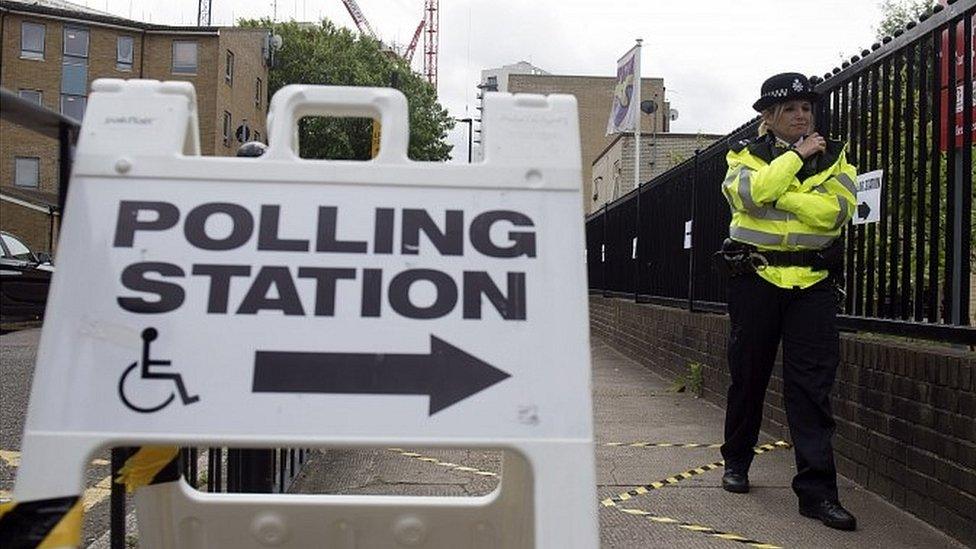
- Published12 July 2017
